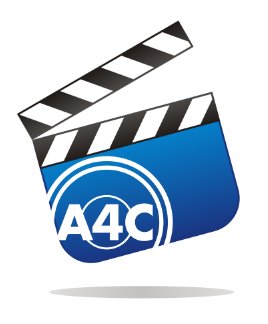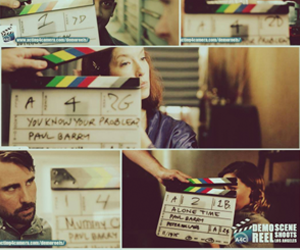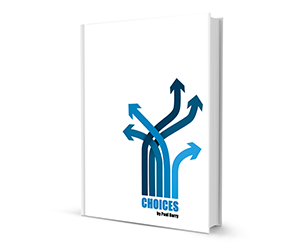by Paul Barry
A client recently asked me: ‘what’s the difference was between impulse and instinct’. Although I gave it a good crack, I wasn’t happy with my improvised reply, so I thought I’d formulate it in a more considered written response.
Upon further reflection, I discovered that things could not simply be broken down into only the two parts, thus settling on three:
Impulse
Instinct
and
Intuition
Allow me to extrapolate…
1) Impulses
Whether it be the body’s decision to breathe, the emotions’ prompting to cry, or the brain’s insistence on making light of an awkward situation, every single thing we do is an ‘impulse’. As we age, the brain convinces us that our fear-driven physical and emotional reactions in any given situation are ‘intuitive’, but this simply isn’t so.
It is, in fact, impossible to NOT have impulses; the real challenge is in divining which impulses are ‘instinct’ and which are ‘intuition’. ‘Impulse work’ therefore needs greater clarification before it can be of much use to the actor.
2) Instincts
From the moment of conception, our sole ‘instinct’ is to survive. Countless sociological and evolutionary studies will confirm this, but common sense alone will save you a mountain of research. If the instinct were not to move toward pleasure and ease, run away from danger and avoid pain, or deflect potential confrontation, homonids would have petered out millions of years ago; all eaten by saber-toothed tigers or poisoned by ingesting toxic berries.
Many might question this ‘survival’ assertion in the light of war, murder, child abuse and the Global Financial Crisis but, aside from the rare cases of sado-masochism, how else would one explain the root cause of greed and violence, but for the innate human need to take and keep for oneself as the ultimate act of survival? Not all human fallibility results in such anti-social behaviour, but very little human fallibility promotes the counter-intuitive traits of altruism, benevolence, and the ego-less act of openly confronting difficult issues head on. As such, it is easy to accept that ‘instinct’, as a natural, pre-installed, hard-wired human feature is, at its base, to protect itself from all outside threats.
As an actor, this is the sole reason why making bold, exciting, and interesting choices is so difficult when acting solely upon ‘instinct’.
3) Intuition
This is where it gets interesting…
‘Intuition’, I believe, is frequently mistaken for one or both of the previous terms, when in fact it couldn’t be further from them. If we are to believe that intuition is a deep and unconcious understanding (or ‘knowing’) about the path one should take in any given moment, then it certainly doesn’t always fit the definition of ‘instinct’ above. Equally, if we accept the definition of ‘impulse’ as I have outlined it, then there is no advantage to seeing ‘intuition’ as the same thing.
From the Greek, ‘intueri’, meaning ‘to look into’, the word ‘intuition’ is variously defined as ‘an irrational function’ (Jung), ‘a struggle against conceptual knowledge’ (Zen meditation), and ‘the third stage of higher learning, following imagination and inspiration’ (Steiner). However one may choose to define it, the universal consensus on intuition seems to be that it transcends any conscious attempt to understand it. Further, in many cases, the very act of attempting to understand intuition is the very thing that appears to kill it.
 An area rarely spoken of though, and one I dedicate a large amount of time to in in acting classes, is:
An area rarely spoken of though, and one I dedicate a large amount of time to in in acting classes, is:
‘counter-intuition’
It is commonly believed in acting tuition that anything other than complete subservience to one’s instinct or intuition will result in nothing happening at all. However, since ‘impulses’ cannot be stopped (just as energy cannot ever die; it is simply transformed and redistributed), to challenge an instinct actually just sends the impulses in another direction.
Just as damming a river doesn’t vaporize the water, providing barriers for human impulses does not block impulses from occurring. They simply head a new direction. In the case of a dam, the water stops flowing downstream and starts rising against the wall. Preventing an actor from succumbing to common habits (or instincts) can oftentimes spawn exciting impulses in new directions.
This is a topic that I could explore and discuss for hours, but for now allow me to summarise.
- We cannot stop impulses. We breathe, we cry, we love, we get hungry. In the minute it takes to wonder what our next ‘instinct’ might be, a hundred ‘impulses’ have already occurred
- We can identify which impulses are instinct (eg: fight or flight) and which are intuition (eg: giving to charity or helping a lost child find their parents), therefore offering us more range in the choices we make, as opposed to the habits that happen to us
- Additionally, counter-intuition provides us with the opportunity to redirect certain impulses, rather than follow them like a slave (eg: listen to a point of view that violently opposes ours, without making judgements or feeling like lesser beings for doing so)
- It is in the place of counter-intuition that I believe the most interesting, challenging and risky acting lies
Curiously, this is true of real life as well, if we are open to it. Letting go of pre-conceived notions, resisting the urge to run from difficult interactions, and walking headlong into situations we’d rather avoid, are all ways in which we broaden our abilities as both actors and human beings.
Paul Barry is an actor, director, writer, teacher and blogger. He co-owns Acting 4 Camera and Showreels Australia. He lives in LA, but regularly teaches via Skype, all around the world.
(The blogs you see on www.acting4camera.com are free, but they don’t write themselves. If you find the information useful, feel free to donate below to keep them coming. Your contribution of any amount is graciously welcomed!)









Another one of your thought provoking and well considered posts, Paul. Didn’t Mamet also say to the effect in one of his books that audiences will be most beguiled by that actor facing his/her challenges, doing the risky stuff, being counter-intuitive, creating uncertainty….’what will he/she do next?’ That’s what keeps them in their chairs isn’t?
Report this comment
That’s just it, Don. But it’s one thing to promote that we should take risks and quite another to define what a risk is, in order for it to actually be done. I haven’t heard many people define a risk in such a way that actors can actually do something with the knowledge afterwards. This is the danger of telling people to simply ‘go with their gut’.
Report this comment